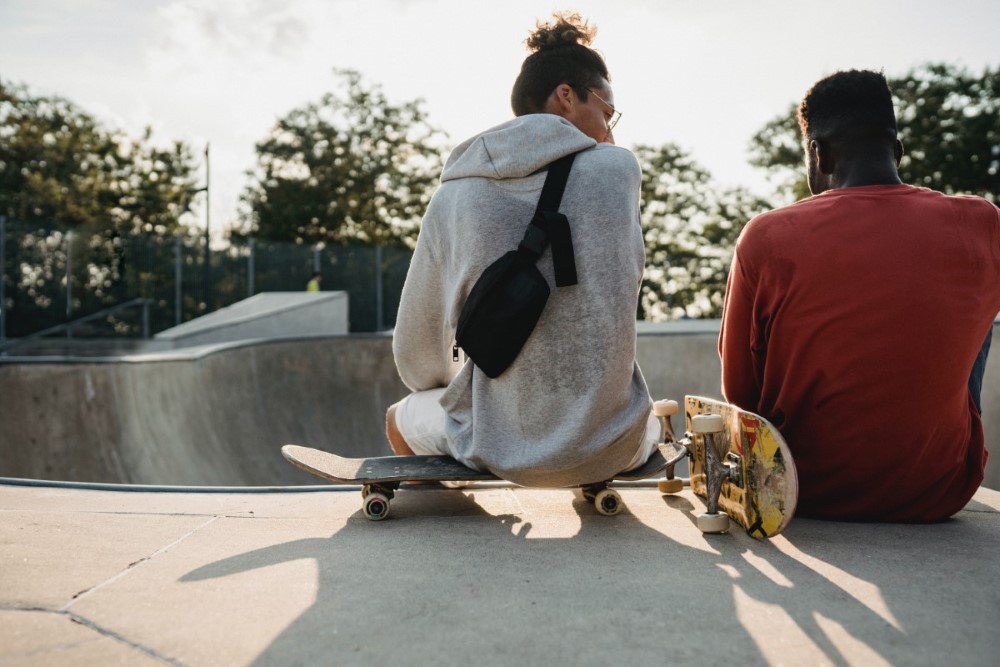Proactive Measures in Preventing Youthful Drug Experimentation

Addressing the issue of drug experimentation among youth requires proactive and multifaceted strategies. This article delves into early intervention and educational tactics aimed at preventing young individuals from experimenting with drugs.
Importance of Early Education
Educating children and teenagers about the risks and realities of drug use is crucial. Starting this education early in schools and at home can build a solid foundation of awareness. It’s about providing factual, age-appropriate information that empowers them to make informed choices.
Family plays a pivotal role in early intervention. Open communication within the family about drugs and their effects can foster a supportive environment. Parents and guardians can be role models, showing healthy coping mechanisms for stress and challenges.
Schools can implement targeted intervention programs that are more than just informational. These programs can focus on skill-building, such as decision-making, self-esteem enhancement, and peer pressure resistance, equipping students with tools to refuse drugs.
Involving the wider community, including local organizations and youth groups, in anti-drug campaigns can create a supportive network. Community-led initiatives can provide safe spaces and activities, keeping young people engaged and informed.
Addressing Mental Health
Understanding and addressing underlying mental health issues is a key strategy in preventing drug experimentation. Early mental health support can help youth deal with emotional and psychological challenges without resorting to substance use.
The portrayal of drug use in media and online platforms can influence young minds. Educating youth about the difference between media portrayals and real-life consequences of drug use is essential. Parents and educators should also monitor and discuss the content young people are exposed to.
Different age groups and demographics require tailored messages about drug use. What works for teenagers may not be effective for younger children. Understanding and addressing these differences can make educational efforts more effective.
Ongoing monitoring and feedback mechanisms within schools and communities can help assess the effectiveness of intervention strategies. Regular surveys, discussions, and adjustments based on feedback are essential in keeping these strategies relevant and effective.
Preventing Youth Drug Experimentation
When it comes to safeguarding youth from drug experimentation, early intervention and educational strategies play a pivotal role. In line with the discussions in Early Intervention: Strategies to Curb Youthful Drug Experimentation, here are key insights and effective approaches to prevent youthful engagement in substance abuse.
Unveiling How Drug Abuse Develops
Early intervention begins with understanding the roots of drug abuse. Delve into how substance abuse develops, gaining valuable insights into the early signs and triggers that may lead youth towards experimentation. This foundational understanding forms the basis for targeted prevention strategies.
Building Resilience
A critical aspect of early intervention is empowering youth to navigate temptations and peer pressure. Explore strategies discussed in Early Intervention, emphasizing the importance of building resilience. Equip youth with the tools to resist external pressures, fostering a sense of self-efficacy in making healthy choices.
A Powerful Preventive Measure
Schools play a central role in early intervention. As discussed, leveraging relationships within the school environment is a powerful preventive measure. Explore how influential school personnel, acting as role models, can positively impact students. This connection reduces the likelihood of engaging in risky behaviors, including drug and alcohol use.
Therapeutic Support
Early intervention involves addressing co-occurring conditions. Get insights from Early Intervention on the importance of getting the therapies needed for mental health concerns. By identifying and addressing these conditions early on, youth are better equipped to resist the pull of substance abuse.
A Holistic Approach to Youth Well-Being
Early intervention strategies align with a holistic approach to youth well-being. Delve into the three types of prevention – primary, secondary, and tertiary – as discussed in Early Intervention. Explore how these strategies, rooted in a public health model, contribute to anticipating, preventing, and addressing drug abuse among youth.
The Impact of Early Intervention on Youth Drug Experimentation:
As we explore Early Intervention: Strategies to Curb Youthful Drug Experimentation, it’s crucial to consider the potential future impact of these strategies. This discussion aims to empower you with insights into the lasting effects of early intervention on the well-being of youth, fostering a resilient and drug-free future. One of the enduring impacts of early intervention is the empowerment of youth through education. By instilling knowledge about the dangers of drug experimentation and providing coping mechanisms, these educational strategies become a lasting legacy. You and your community can contribute to shaping a generation well-equipped to make informed, healthy choices.
A Cultural Shift in Approaching Mental Health
Early intervention not only addresses drug experimentation but also contributes to reducing the stigma surrounding mental health. By fostering an environment where seeking help is normalized, you and your peers play a vital role in initiating a cultural shift. This change promotes open conversations about mental health, making it easier for youth to seek support when needed.
Navigating Life’s Challenges Beyond Drug Experimentation
Beyond the immediate goal of preventing drug experimentation, early intervention sets the stage for long-term resilience. Equipping youth with coping mechanisms and a strong support system helps them navigate life’s challenges. As you engage with these strategies, consider the lasting impact they can have on the mental and emotional well-being of the youth in your community.
The future impact of early intervention relies on creating and sustaining supportive environments. As you and your community implement these strategies, you contribute to fostering a culture of support and understanding. This, in turn, enhances the effectiveness of early intervention, creating an environment where youth feel valued and empowered.
The potential future impact of early intervention extends to community connections. By collaborating with educators, parents, and community leaders, you play a crucial role in strengthening the network of support. Together, you can create a united front against youthful drug experimentation, building a collaborative future that prioritizes the well-being of the entire community.
In summarizing our exploration of “Early Intervention: Strategies to Curb Youthful Drug Experimentation,” it becomes evident that preventing drug use among youth is a multifaceted challenge requiring a collective effort. From early education in schools and homes to the vital role of family dynamics and community engagement, each aspect plays a crucial role in shaping a drug-free future for our youth.
We’ve seen how tailored educational programs, addressing mental health, and understanding the influence of media are integral in equipping young individuals with the right tools and knowledge. These strategies are not just about imparting information; they are about building resilience, fostering open communication, and creating supportive environments where young people can thrive.
It’s essential to approach these challenges with empathy and understanding. Recognizing the pressures and influences faced by youth today is key to effectively guiding them towards healthier choices. Remember, the goal is not just to inform but to connect and empower.
Experiences, and insights on this topic are incredibly valuable. I invite you to share your perspective in the comments or engage further by sharing this article within your network. Whether you are a parent, educator, or simply someone passionate about the wellbeing of our youth, your contribution to this dialogue can make a significant difference in our collective efforts to curb youthful drug experimentation. Together, we can work towards a future where our young people are equipped to make informed and healthy decisions.






